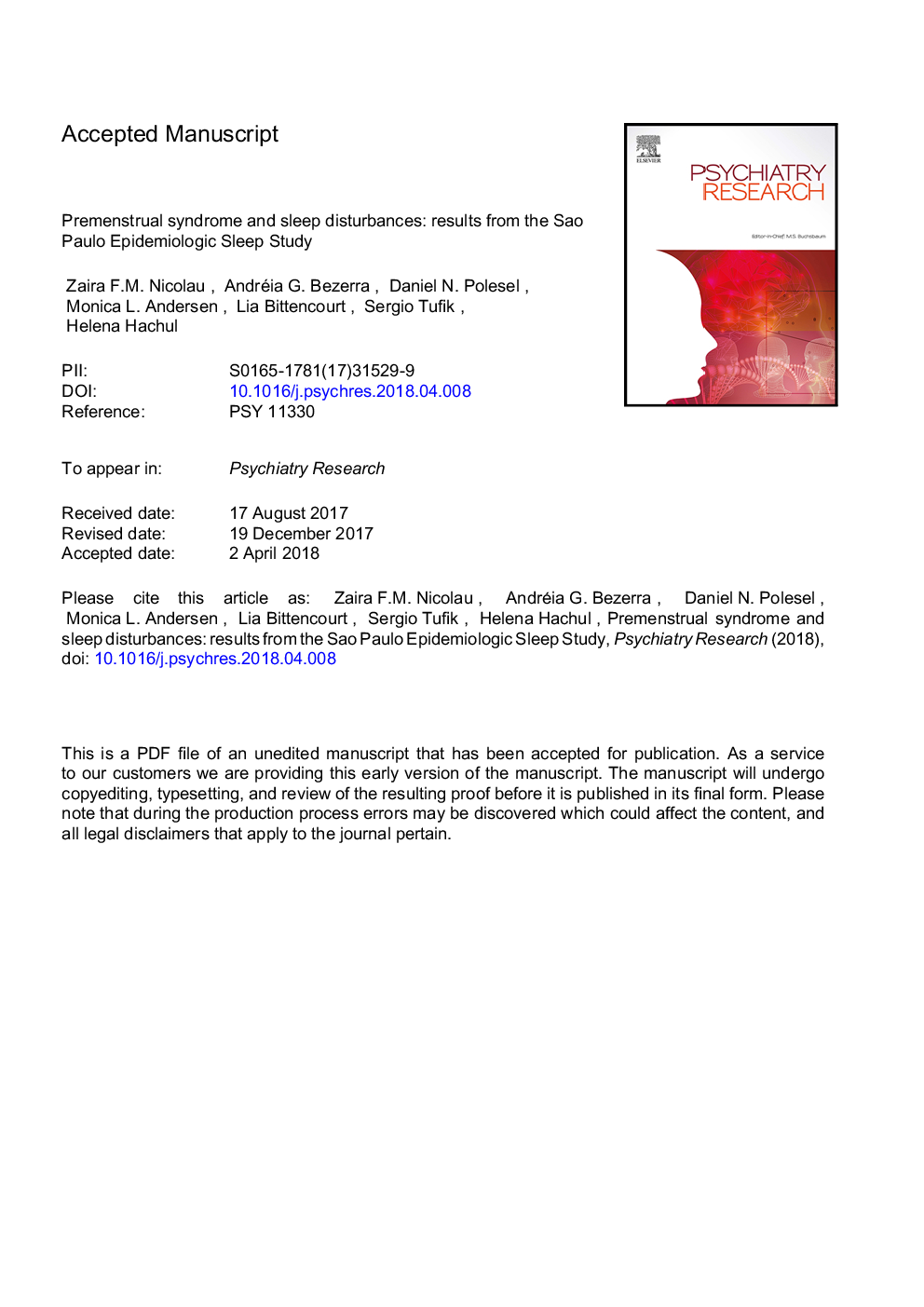| Article ID | Journal | Published Year | Pages | File Type |
|---|---|---|---|---|
| 6811740 | Psychiatry Research | 2018 | 22 Pages |
Abstract
The aim of this study is to compare sleep characteristics between women with premenstrual syndrome (PMS) and a control group. The data were extracted from an epidemiologic survey conducted in Sao Paulo (EPISONO), Brazil, which used subjective assessments and objective polysomnography records to analyze subjects' sleep pattern. Subjective questionnaires used in this study were Women's Questionnaire, Pittsburgh Sleep Quality Index, Epworth sleepiness scale, Insomnia Severity Index and the general sleep questionnaire. The presence of PMS was obtained by a direct question in the Women's Questionnaire. The survey included 230 women, of whom 72.6% reported PMS. The PMS group had poorer sleep quality, a higher perception of unrefreshing sleep and more subthreshold insomnia. Participants with PMS had an increased total sleep time recorded by polysomnography and a lower saturation of peripheral oxygen. It is still unkown the mechanism behind PMS and the sleep-wake cycle. In the other hand, it is clear that PMS play a role in sleep, since women with this disorder has a poor quality of sleep and it is not refreshing. Better knowledge about this syndrome and its outcomes can help to improve their well-being and develop more precise therapeutic approaches.
Related Topics
Life Sciences
Neuroscience
Biological Psychiatry
Authors
Zaira F.M. Nicolau, Andréia G. Bezerra, Daniel N. Polesel, Monica L. Andersen, Lia Bittencourt, Sergio Tufik, Helena Hachul,
